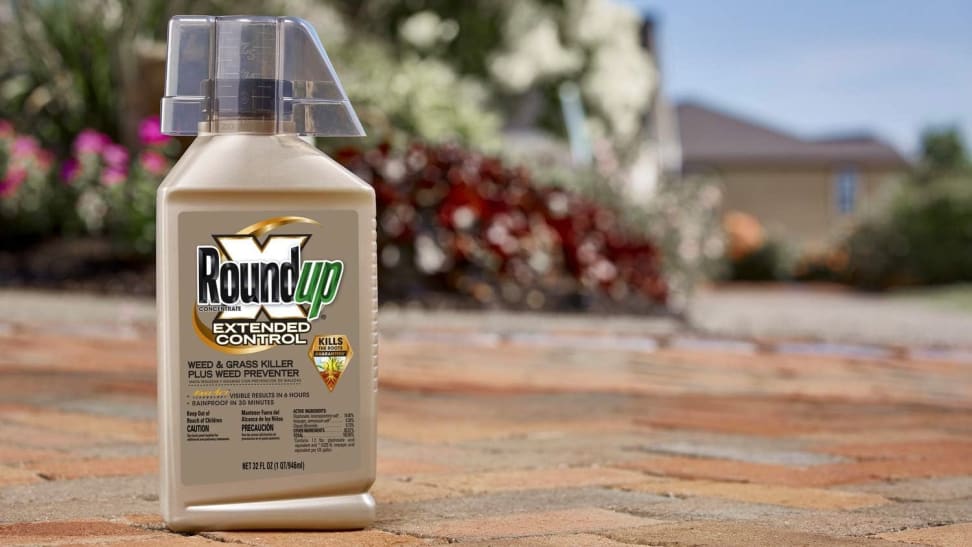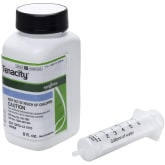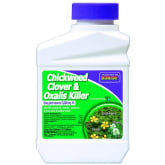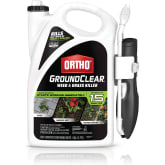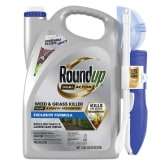Written by TJ Donegan, who has covered electronics, TVs, smartphones, parenting for 10+ years.
Updated July 25, 2025
The Rundown
- Our favorite weed killers for lawns are the Spectracide Weed Stop for Lawns Plus Crabgrass Killer and the Syngenta Tenacity Herbicide.
- The best weed killer depends on your specific weeds, desired plants, and local ecosystem, requiring careful application according to label instructions.
- Consider pre-emergent herbicides for prevention or post-emergent for existing weeds, applying early morning on a calm day for maximum effectiveness.
Controlling weeds like crabgrass in and around your lawn can be tricky, and nobody wants to accidentally use the wrong product and kill parts of their grass. We’re here to help; we’ve used nearly every type of weed killer on the market, from selective herbicides that kill tough weeds (but not your lawn!) to non-selective ones like Roundup that will kill just about any plant they touch.
There’s no one weed killer that works “best” for lawns and grass, because the best weed killer for you is the one that works with the weeds you have, doesn’t harm your desired plants, and is appropriate for your local ecosystem.
All types, even organic weed killers, need to be applied carefully. That means following the label to the letter, using appropriate safety gear and clothing, keeping chemicals away from kids and pets, and applying the weed killer on a day without much wind.
You also should be mindful of the active ingredient in each of the weed killers here. Most are safe for you, your pets, and your kids when you follow the label, and all the ones we’re featuring are considered relatively non-toxic to bees and other animals (though they may be harmful to fish or frogs). You need to be careful about what you introduce to your environment, and a perfect lawn isn’t worth damaging the ecosystem that supports it.
To help you find the right lawn weed killer, we explored a variety of options available online. Based on our research, these are the best weed killers for lawns available online right now.
Choosing the Best Weed and Grass Killer for Your Lawn and Garden
What even is a weed? Do you need to get rid of it? These are important questions to consider when crafting a weed-control plan for your lawn. While having a picture-perfect lawn full of a single, uniform type of grass may appeal to some, others may be fine with a mix of grass and weed types as long as things don't get out of hand. Generally, this latter approach will yield a healthier overall garden, with better biodiversity.
Nearly every state university has what's known as an "extension program" that studies your local plant life and can give specific, regional recommendations on how to maintain your lawn and garden. They're also the best resource when it comes to local regulations, which can vary from state to state and restrict what types of weed killers are available to you.
No matter what, the best way to control lawn weed is to help feed and maintain a healthy lawn of desirable grasses that grow well in your particular climate zone. You can see the USDA's Plant Hardiness map for specifics about what zone your home is in. That'll determine the types of grass you should cultivate, the types of weeds you're likely to encounter, and how to best time your lawn care routine so that your lawn is as healthy as possible.
Even the best, healthiest lawn is likely to have some weeds that sprout. Some weeds will come and go without bothering your lawn, and flowering types can be important for local pollinators such as bees.
For other types of invasive weeds, such as crabgrass, you'll need to be both aggressive and proactive to keep them from taking over your lawn. In these cases, you'll want to use a weed preventer. Though most of the weed killers we've used advertise the ability to "prevent weeds," in most cases you'll want to investigate a "pre-emergent" herbicide that you apply in the spring and early summer before weeds start to sprout.
Pre-Emergent Herbicides
Though most of the weed killers we've used advertise the ability to "prevent weeds," in most cases you'll want to investigate a "pre-emergent" herbicide that you apply in the spring and early summer before weeds start to sprout. Pre-emergent herbicides form a chemical barrier in the upper inch of soil. When weed seeds germinate and begin to sprout, that barrier disrupts cell division, blocking development. This prevents weeds from germinating, so you don't have ugly weeds to begin with. Timing is everything, however: pre-emergent must be applied as seeds are beginning to sprout; once they have started to grow, they are no longer effective.
Post-Emergent Herbicides
Post-emergent herbicides kill weeds that have already sprouted, either by killing them on contact or by working through the plant to kill it down through the roots. They can be applied at any time after a weed has emerged, but are usually more effective on smaller, younger plants.
If all else fails, you can always just dig the weed out by removing the root system. Otherwise, weed killers like those featured above are your best bet. They're more specifically designed to kill weeds that have already begun to sprout, when pre-emergents are no longer effective.
Keep your lawn healthy, apply pre-emergent at the right time, and use weed killer sparingly to control invasive species, and your lawn will be in tip-top shape in no time.
How to Apply Weed and Grass Killer Effectively
Best Times to Apply
For maximum effectiveness, apply your herbicide early in the morning — cooler temperatures and dew on the ground allow for best absorption. Picking a day without high winds also makes sure your product lands where you intend it – and not anywhere it will harm other plants or grasses.
How Often to Apply
Always follow the directions provided as to how frequently to apply your product of choice – too often, and you can risk damaging your lawn (and wasting your money); too infrequent, and the product won’t effectively kill weeds (and wasting your money).
Spot Treatments Versus Full-Lawn Applications
Spot Treatments
Spot treatments focus on problem areas, letting you use less product overall and focusing it where unwanted plants are growing. It’s best used for patches of invading weeds or grass within a larger garden bed or lawn, or around the edges of patios, driveways, and paths. They are very effective — and lethal: If you accidentally treat areas of grass or plants that you don’t intend, the spot treatments will kill those plants as well.
Full-Lawn Applications
Full-lawn treatments are formulated to leave common grass species alone while taking out unwanted weeds, meaning you can spray them broadly across your entire lawn, knowing only the stuff you want gone will be affected.
Frequently Asked Questions About Weed Killers
When is the Best Time to Spray Weed Killer?
Spring is the best time of year to spray weed killer since weeds are still in their pre-growth phase. Plus, spring is also fairly warm and damp, and absorption is required for herbicides to work properly. In the morning, weeds grow the fastest, so it’s best to spray them around then for quicker absorption.
Do Natural Weed Killers Work Well?
Natural weed killers are made of natural ingredients, such as vinegar, plant oil, soap, and different acids. They don’t completely prevent weed growth, but they can work well at controlling certain weeds in your lawn. But remember: "natural" doesn't always mean "better for the environment." Using a concentrated form of vinegar on weeds, for example, can cause more collateral damage to surrounding plants and pollinators than carefully chosen weed killer can — and mixtures made with salt can cause lasting damage to soil. Do your research into potential side effects before opting for a natural weed killer, and use with as much caution as if you were using a grass and weed killer formulation.
More Articles You Might Enjoy
